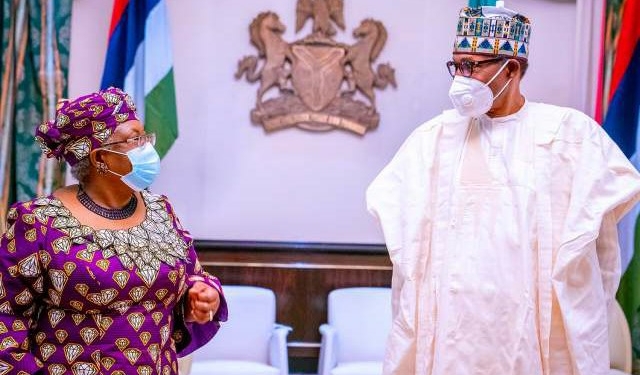Ngozi Okonjo-Iweala, the Director General of the World Trade Organisation (WTO) has advised Nigerian government to cut down on trade and infrastructure costs to attract more investors.
The DG of WTO also recommended a reduction of linkage and regulatory costs as well as Customs duties to encourage investments.
She decried that the costs of doing business in Nigeria were far higher than those of high-income countries.
The WTO boss also canvassed for an improvement of the security situation in the country to attract foreign and domestic investments.
These suggestions were made by Okonjo-Iweala at the just concluded two-day Mid-term Ministerial Performance Review retreat in Abuja.
According to her, Nigeria must also reduce all costs associated with moving goods from the factory to the final consumer to complement investment facilitation.
She said Nigeria’s trade cost, which is about two percent higher than the rest of African countries, is equivalent to a 306% tariff, and about one and half times higher than the cost in high-income countries.
Her words: “Improving security and lowering transaction cost for foreign investment, even for domestic investment, would be necessary. And Nigeria is part of a group of countries negotiating an agreement on investment facilitation at the WTO.
”Once this agreement is negotiated, ratified, and is being implemented, it could be instrumental in attracting additional trade-oriented investment.
”To complement investment facilitation, Nigeria has to cut down on trade cost, infrastructure cost, linkage cost, regulatory cost, customs cost, basically, all costs associated with moving goods from tie factory or farm gate to the final consumer.
”Nigeria’s trade costs are too high. According to the World Bank-ESCAP trade costs for 2019, trade costs for African countries are on the average equivalent of a 304% tariff and for Nigeria, it’s even slightly higher at 306%.
”These numbers are one and half times higher than trade cost in high-income countries. Such high costs are not conducive to forming a regional value chain.
“Congestion, capacity constraints and high costs in our ports make life difficult for anyone seeking to build supply chain operations in Nigeria and hence, expand trade from there.”.










Discussion about this post